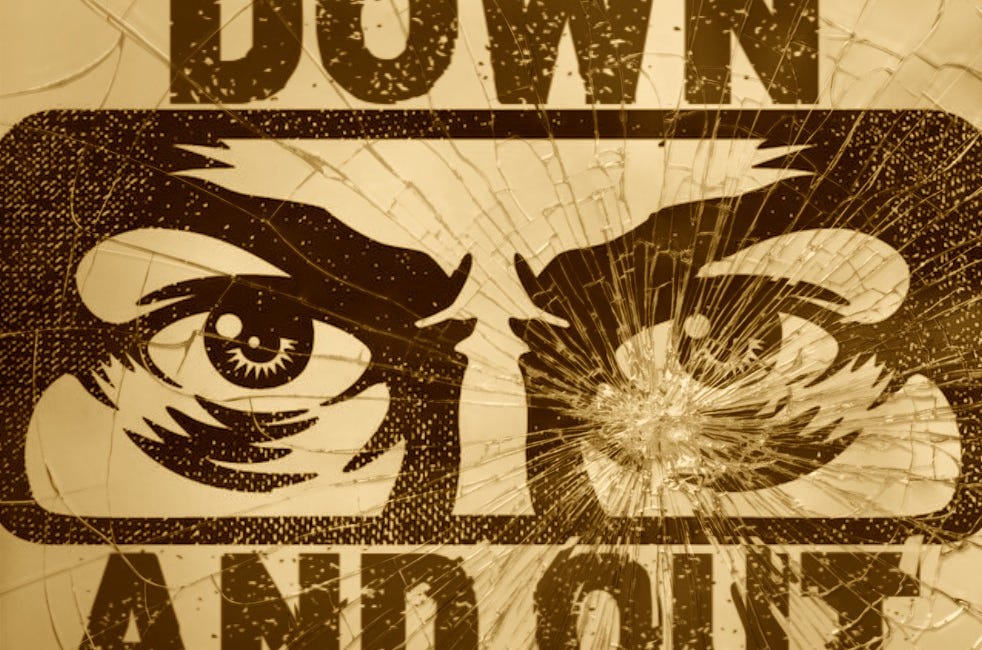Here we are. Burmese Days: the title of George Orwell’s first novel, and an apt nickname for the period of Eric Arthur Blair’s life that began after his graduation from Eton.
Unlike most Etonians at the time (and presumably much to the chagrin of the admissions people who awarded him a generous scholarship), young Eric Arthur Blair did not attend a university. Instead, he followed in his family’s imperial footsteps and joined the Imperial Police Force in Burma (now Myanmar) at the age of nineteen.
He hated it. He stayed in Burma for five years before quitting the police force and returning to England to become a writer.
Blair didn’t do much writing while he was in Burma. He penned a few poems here and there which have faded into obscurity. However, he wrote a fair amount about this period of his life afterwards.
In fact, one of the first articles Blair ever published was his 1928 essay, “How a Nation is Exploited: The British Empire in Burma,” written in a French newspaper during his time living in Paris. The article was immensely critical of the British occupation of Burma. Blair describes the English rule of Burma as despotism hidden behind “a mask of democracy.” Burma was firmly under Birtish control (by threat of violence, if necessary), and top positions in Burma were all occupied by Englishmen. However, other, lesser positions—lower-level magistrates, low-ranked police officers, government employees, and civil servants—were all held by Burmese people.
This led to a strange caste system in which the English all ranked firmly at the top, followed by a sect of Burmese who were loyal to the English because the English despots actually raised their standard of living. They got rich, comparatively speaking, by playing along with the exploitative imperialist system
George Orwell’s novel Burmese Days depicts this. It is one of those novels where every single character is loathsome and pathetic at the same time. Englishmen are ugly and sex-deprived, clinging to the small level of prestige associated with their title. Burmese magistrates and other lowly officials who have enriched themselves within the imperial system engage in shady deals and slimy, back-stabbing plots.
It’s a nuanced book which describes a system that has evolved in such a way that it’s not possible for anyone within it to be a ‘good person.’ If you’re interested, give it a read, but it can be long and kind of tedious, so if you’re not interested, an excerpt from a conversation between John Flory, a ‘Bolshie’ English timber merchant, and his friend Dr. Veraswami, a Burmese man who is sympathetic to the English to a naive degree, should do the trick:
““My dear doctor,” said Flory. “how can you make out that we are in this country for any purpose ecept to steal? It’s so simple. The official holds the Burman down while the business man goes through his pockets. Do you suppose my firm, for instance, could get its timber contracts if the country weren’t in the hands of the British? Or the other timber firms, or the oil companies, or the miners and planters and traders? How could the Rice Ring go on skinning the unfortunate peasant if it hadn’t the Government behind it? The British Empire is simply a device for giving trade monopolies to the English—or rather to gangs of Jews and Scotchmen.””
“My friend, it is pathetic to me to hear you talk so. It is truly pathetic. You say you are here to trade? Of course you are. Could the Burmese trade for themselves? Can they make machinery, ships, railways, roads? They are helpless without you. What would happen to the Burmese forests if the English were not here? They would be sold immediately to the Japanese, who would gut them and ruin them. Instead of which, in your hands, actually they are improved. And while your business men develop the resources of our country, your officials are civilizing us, elevating us to their level, from pure public spirit. It is a magnificent record of self-sacrifice.”
“Bosh, my dear doctor. We teach the young men to drink whisky and play football, I admit, but precious little else. Look at our schools—factories for cheap clerks. We’ve never taught a single useful manual trade to the Indians. We daren’t; frightened of the competition in industry. We’ve even crushed various industries. Where are the Indian muslins now? Back in the ‘forties or thereabouts they were building seagoing ships in India, and manning them as well. Now you couldn’t build a seaworthy fishing boat there. In the eighteenth century the Indian cast guns that were at any rate up to the European standard. Now, after we’ve been in India a hundred and fifty years, you can’t make so much as a brass cartridge case in the whole continent.”
It’s a strange dilemma, furthered even more by the fact that in a world that was becoming increasingly globalized and ruled by totalitarians and despots, a real case could be made for the fact that it was simply impossible for countries like Burma to exist on their own anymore.
Orwell addresses this problem in his 1941 essay “The Lion and the Unicorn: Socialism and the English Genius,” which outlines his ideal vision for socialism in England and the future of the British empire. He speaks greatly on the subject of the British occupation of India (with the addendum that “what applies to India applies, mutatis mutandis, to Burma, Malaya and most of [Britain’s"] African possessions”).
Indian independence didn’t seem to be an option for Orwell. His position was that India was not at the moment capable of defending or even feeding itself, and that, if Britain granted it sovereignty, it would merely be gobbled up by some other imperialist state which would govern far less efficiently than Britain:
A complete severance of the two countries would be a disaster for India no less than for England. Intelligent Indians know this. As things are at present, India not only cannot defend itself, it is hardly even capable of feeding itself. The whole administration of the country depends on a framework of experts (engineers, forest officers, railwaymen, soldiers, doctors) who are predominantly English and could not be replaced within five or ten years. Moreover, English is the chief lingua franca and nearly the whole of the Indian intelligentsia is deeply anglicized. Any transference to foreign rule – for if the British marched out of India the Japanese and other powers would immediately march in – would mean an immense dislocation. Neither the Japanese, the Russians, the Germans nor the Italians would be capable of administering India even at the low level of efficiency that is attained by the British. They do not possess the necessary supplies of technical experts or the knowledge of languages and local conditions, and they probably could not win the confidence of indispensable go-betweens such as the Eurasians. If India were simply ‘liberated’, i.e. deprived of British military protection, the first result would be a fresh foreign conquest, and the second a series of enormous famines which would kill millions of people within a few years.
Clearly, Orwell did not consider foreign conquest and famine were not desirable outcomes for India. What was the solution, then?
The one Orwell posed was rather idealist. He spoke of a ‘partnership,’ in which Britain, run by a socialist government, would aid India in the forms of “military protection and technical advice,” while still offering them the option to secede at any time.
Perhaps this would be the moral solution, but of course, as governments typically do not like coughing up money and resources and gaining nothing in return, it did not come to pass.
For our purposes, the point is that this point in Orwell’s life strengthened his disdain for classism and oppression, and sparked his loathing of British imperialism.
He wrote two other narrative essays about his time in Burma (“A Hanging,” written in 1931, and “Shooting an Elephant,” written in 1936), which detail the strange horror he felt about being a police officer upholding a despotism in Burma that he did not believe in.
He only made it five years, after which point he took to the streets of London and Paris to pursue his dream of becoming a writer.
Thanks for reading. If you’re enjoying this book and would like to support my work, consider becoming a free or paid subscriber.
You can also buy me a coffee.
Chapter Five:
Down and Out
This is the fifth chapter of Breaking Big Brother, a book about the life and work of George Orwell. To read from the beginning, click here.






Love this Melissa, beautiful walk through, thoughtful, and informative. It gave me new insights into the geopolitics and how Orwell's experiences would color his politics. Thank you.
Excellent, young lady!
Not so youd'a noticed of course (grin) but I tend to be a bit of a contrarian , oft looking for the other side of the story.
In this case I think you've touched at least 27 sides of the tale. Good job!